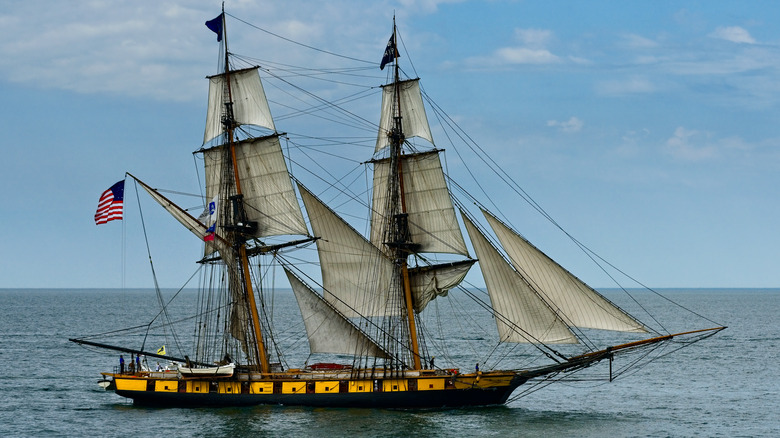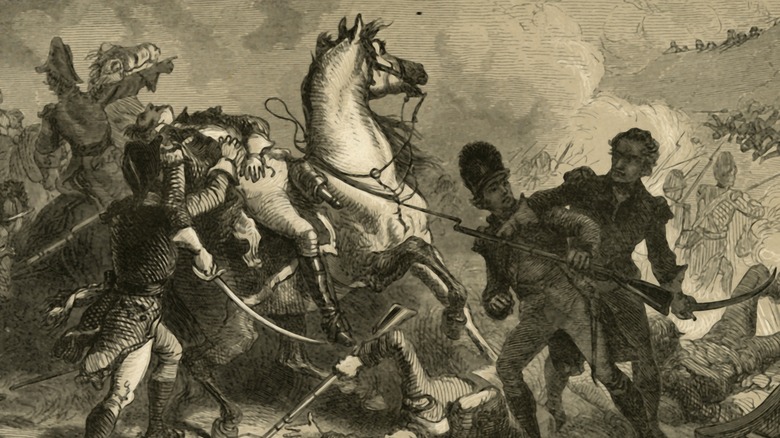The Real Reason The War Of 1812 Began
The War of 1812 pitted the United States against Great Britain, marking the first military conflict between the two nations since the Revolutionary War. What drove these two countries to wage war so soon after their last clash? Issues of trade, sovereignty, and land brought the Americans to face off again against their former foes (via Britannica). Around this time, Britain and France had their own battle going with each other, and the United States was caught in the middle.
With the 1806 Berlin Decree, France declared ships that visited British ports as their enemies (via Britannica). The British retaliated with the Orders in Council of 1807, which called for ships from neutral countries to stop in British ports to pay a fee to get a license to trade with France and its colonies (via Britannica). Any ship that failed to do so was viewed as an enemy by the British (via Niagara Falls Museums). These laws put the United States, which traded with both nations, in a no-win situation. These legal obstacles to foreign trade so frustrated the U.S. government that it responded with the Embargo Act, which closed down all international trade out of U.S. ports (via American Battlefield Trust). Sadly, the Embargo Act triggered an economic downturn for the fledgling nation.
President Madison declares war against Britain
Not only did the British disrupt U.S. trade with its laws, the country also used its practice of impressment to take Americans from their own ships to serve in the British Royal Navy. According to the U.S.S. Constitution Museum, somewhere between 6,000 to 9,000 Americans were taken and forced into naval duty between 1803 and 1812. This lack of respect for the sovereignty of private U.S. ships by the British became another point of tension between the two nations (via Niagara Falls Museums).
Things also got heated about possible expansion of the United States on its northwest border. Native Americans in the region allied themselves with the British in fear that American settlers would displace them from their lands (via Britannica). American settlers believed that the British via its forces in Canada were making trouble for them with the Native Americans. This conflict was part of the ammo used by war-hungry politicians, such as Kentucky's Henry Clay, to drive the nation closer to war (via Niagara Falls Museums).
President James Madison declared war on Britain on June 18, 1812 (via American Battlefield Trust). In an odd twist of fate, Britain had suspended its Orders in Council two days before Madison declared war (via Britannica). But communication was so poor in those days that it took a month for the news to reach the United States.

